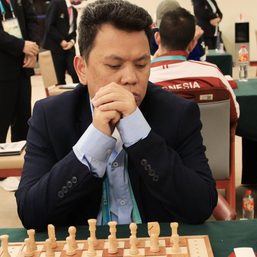SUMMARY
This is AI generated summarization, which may have errors. For context, always refer to the full article.
![[Clinical Notes] Stepmoms and their new families](https://www.rappler.com/tachyon/r3-assets/4EB1ACFEF6C04EECBF38224DA683B2C8/img/CCFC5CEEFBA14E17ACE5001A3AAC291C/margie_holmes.jpg)
In this edition of Clinical Notes, clinical psychologist Margarita Holmes sheds light onto why some stepchildren see and treat their fathers’ second wives negatively. This, after an issue raised by a Two-Pronged reader whose children do not get along with his second wife. He’s asking what he can do to make his children see that his second wife is not who their mother portrays her to be.

I have received a plethora of emails ever since my last Clinical Notes (CN) column. Well, maybe I exaggerate since in this case, plethora actually means a mere 7: 5 “for” stepmoms, and 2 “against” them. After one day, that is reaching “epic” proportions for a mere column… or so I like to think.
I did not want to be the spokesperson for or against marriages-after-the-first-one, and still do not want to be. All I see myself as doing is sharing a view, based on clinical experience, that might be helpful for people to understand themselves better and perhaps change their attitudes and then their behavior, if they think this is called for.
However, the non-legalization of divorce in this country, the unfair way some “new wives” are treated, the equally and sometimes worse ways some ex (first) wives are treated, the horrible way stepchildren treat their fathers’ new wives (previously discussed – although, admittedly, not fully – in my last column), and the horrible ways children betray their mothers by seeming to prefer their stepmothers are not only grist for the therapeutic mill, they are also causes/advocacies people can undertake to help so many.
Letter 1: “I cannot understand why my “stepchildren” (though they are only 7 and 5 years younger than me) hate me. I have always been respectful, never tried to take their mother’s place and given them presents which they have readily accepted. Yet they have laughed at my “camel-toe” pants and my trying-hard ways to win them. How can they be so mean?”
Letter 2: “My husband loves me but, if he is forced to choose between his children and me, he would choose them. Is there anything I can do? I have shown him nothing but love, so why should this be the case?”
Every case is multi-causal, and not knowing more than what the second (etc) wives shared above, I am at a loss to fully answer their question “WHY?”
Usually, however, their WHY? question is followed by reasons that make their stepchildren’s behavior ludicrous (at least, in the stepmothers’ eyes). Some of the more common reasons include:
- Why?!!? When their father met me after he and his wife got divorced, so I am not a home wrecker;
- Why?!!? When their (her now-husband’s and his first wife’s) marriage was virtually over when we met;
- Why?!!? When they are guaranteed not to be left out of his will;
- Why?!!? When they know the reason he cannot be as generous with them as before is because of what he gave their mother?
- Why?!!? When I am so nice.
I am being facetious and certainly not trying to be clever (especially about a situation that has brought tears, angst and insecurity to so many), but allow me to answer with a negative: why not?
The best answer for Why not? comes from Blaise Pascal.
The quote itself is rather long, but the part I like best is (first in the original French so I can – ahem – show off): “Le cœur a ses raisons, que la raison ne connaît point. On le sent en mille choses.”
“The heart has its reasons that reason knows nothing of, felt in a thousand things.”
I love this quote, as does practically everyone.
I do not think, as many cynics might say, “It is because we all want an excuse for the crazy, stupid things we do.”
It is because the truth of Pascal’s words resonates so much in us. Practically all of us have lived through what Pascal says. For the rest that have not experienced the love’s ability to infuse us with courage (nothing but foolhardiness, cynics – again! – might say) we never thought we had in us, how we long to do so.
Albert Einstein recognized this, even if he once said: “How on earth are you ever going to explain in terms of chemistry and physics so important a biological phenomenon as first love?”
With the advent of neuroscience, we might have an easier job doing this than the scientists during Einstein’s time. That is because the latest machines can more sensitively calibrate neurotransmitters coursing through our brain and/or measure, for example, which parts of our brains light up when focusing on our loved ones. These are associated with dopamine and norepinephrine production – both brain chemicals associated with pleasurable activities and excitement.
SO… was Blaise Pascal right? Poetically and lyrically, perhaps, but scientifically, no.
But does it really matter? As long as we realize that, yes, powerful emotions like love and envy can make us do things we cannot explain in rational terms (but hopefully trained professionals might be able to).
As long as we realize that second wives are sometimes unfairly judged and first wives egregiously treated (usually by the man that was originally their spouse but is now another’s).
Finally (for now), as long as we accept that all our voluntary (albeit unconscious at times) actions – both good and bad – are functions of our brains and not our hearts, then through neuroplasticity, we can help ourselves adjust to new situations more maturely and humanely. ABANGAN (Wait for it in the next CN)! – Rappler.com
Add a comment
How does this make you feel?





There are no comments yet. Add your comment to start the conversation.